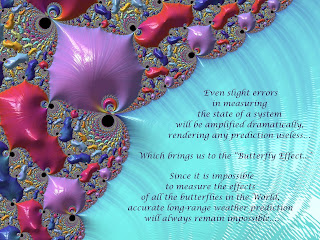riding is a martial art
Thursday, November 17, 2016
Thursday, June 2, 2016
Sunday, May 15, 2016
Monday, May 9, 2016
Saturday, May 7, 2016
Alexander technique in Aikido
The central principle of inhibition, is one that is very useful in aikido practice,
but not very easy to apply, or to describe either.
In Alexander's technique, inhibition is the ability to not react to something.
It doesn't mean suppressing a reaction with some force of will, but just simply making a choice not to react.
Ask someone to move your arm about to shake it lightly..
Make a decision not to help them, but don't prevent them from moving your arm.
That decision that you make is the mental skill called inhibiting.
It's a quieting of the signals that your are sending, in this case to your arm. If you try to force yourself to not interfere with the movement, the person moving your arm will inevitably feel that you are tightening.
If you can make a clear decision of allowing the other person to move your arm about, they will feel it moving in a freer, lighter way.
~edited from AikiWeb
http://www.aikiweb.com/forums/showthread.php?t=15872
Thursday, May 5, 2016
Gleanings
Denny Emerson..
Natalie Voss
"I guess it just depends on the meaning of the word ‘there,’” said Emerson. “
’There’ for some Grand Prix dressage rider, or ‘there’ for Beezie Madden or Michael Jung, is a lot different than the ‘there’ of someone who’s trying to get their horse fit enough to do a 15-mile competitive trail ride.
I think it’s about having a goal that’s realistic within your own physical realities—your physical condition, your age, the horse, your background.”
It sounds so simple, but I’ve realized the key is to set reasonable goals, not just for your career as a rider, but for smaller things like a horse show or a lesson.
Part of what constitutes a “reasonable” goal, Emerson told me, is what the horse will tolerate—you have to have a horse who won’t be so stressed by the learning process that they revolt.
You also have to recognize whether you have a trainer who can explain things in a way that they will “click” and allow you to reach those goals.
And, perhaps most importantly, don’t overdo it.
“Look, who’s going to be a McLain Ward or a Mark Todd?” Emerson asked.
“We all have to settle somewhere. As long as we’re doing a pretty good job, that’s fine.
You don’t have to overstress and over-intellectualize.
Pretty good done most of the time is pretty darn good, you know?”
And so it is.
as Dad used to say .."no hope.. no hurry."..
reality bites..
just love what you do..
as Dad used to say .."no hope.. no hurry."..
reality bites..
just love what you do..
Subscribe to:
Posts (Atom)








